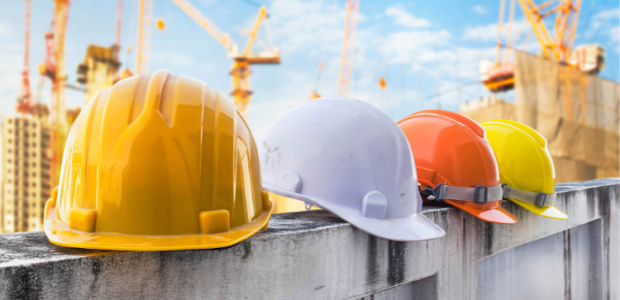
Industrial building construction presents unique challenges that require careful planning, innovative solutions, and adherence to strict safety standards. From large-scale manufacturing facilities to warehouses and distribution centers, industrial construction demands a comprehensive understanding of the industry’s complexities. Here are some common challenges and potential solutions in industrial building construction:
Complex Design and Engineering:
Challenge: Industrial facilities often require complex designs to accommodate specialized equipment, workflow processes, and safety regulations.
Solution: Collaborative engagement between architects, engineers, and construction teams is crucial. Utilizing Building Information Modeling (BIM) can enhance coordination, improve design accuracy, and streamline communication.
Stringent Safety Regulations:
Challenge: Industrial construction sites are subject to strict safety regulations due to the presence of heavy machinery, potential hazards, and the need to comply with industry-specific safety standards.
Solution: Implementing a robust safety program, regular training sessions, and fostering a safety culture among workers are essential. Regular inspections and audits can help ensure compliance with safety regulations. Check all construction links below
- commercial construction bedfordshire
- Road gritting in Milton Keynes
- Ground maintenance bedfordshire
- Buckinghamshire and bedfordshire
Project Scheduling and Timelines:
Challenge: Industrial construction projects often have tight deadlines, and delays can lead to significant financial consequences.
Solution: Thorough project planning, realistic timelines, and efficient project management are crucial. Adopting advanced project management tools and techniques, such as Critical Path Method (CPM) scheduling, can aid in better timeline management.
Budget Constraints:
Challenge: Industrial projects frequently face budget constraints due to the high costs associated with specialized equipment, materials, and compliance with industry standards.
Solution: Conducting a detailed cost analysis during the planning phase helps identify potential cost-saving measures. Establishing a contingency fund for unforeseen expenses can mitigate financial risks.
Infrastructure Challenges:
Challenge: Industrial facilities often require robust infrastructure, including utilities, transportation access, and environmental considerations.
Solution: Collaborating with local authorities, utility providers, and environmental agencies is essential. Conducting thorough site assessments early in the planning phase helps identify and address infrastructure challenges.
Environmental Considerations:
Challenge: Industrial construction projects must adhere to environmental regulations to minimize their impact on the surrounding ecosystem.
Solution: Implementing sustainable construction practices, incorporating energy-efficient designs, and following environmental best practices can help meet regulatory requirements. Utilizing eco-friendly materials and waste reduction strategies are also beneficial.
Logistics and Supply Chain Management:
Challenge: Coordinating the timely delivery of materials and managing the supply chain can be challenging, especially for large-scale industrial projects.
Solution: Adopting efficient logistics and supply chain management systems, leveraging technology for real-time tracking, and maintaining open communication with suppliers contribute to smoother operations.
Integration of Technology:
Challenge: The integration of technology, such as advanced construction equipment and digital project management tools, requires adaptation and training.
Solution: Providing comprehensive training programs for construction teams, embracing Building Information Modeling (BIM), and leveraging construction management software can enhance efficiency and accuracy.
Addressing these challenges in industrial building construction requires a multidisciplinary approach, proactive planning, and a commitment to safety and quality. Collaboration among all stakeholders, including designers, contractors, and project managers, is key to overcoming these challenges and ensuring the successful completion of industrial construction projects
